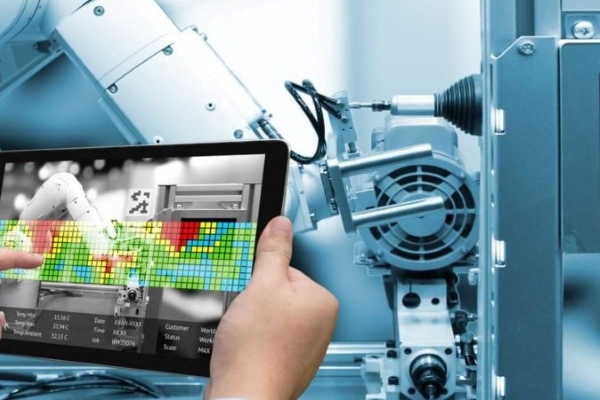1. Embedded control systems: basic specification and current trends in embedded systems, summary of microprocessor and microcontroller theory.
2. Microcontroller: core ARM Cortex M, microcontroller topology a specification.
3. Basic microcontroller configuration: clock signal, watchdog, JTAG, power supply system, reference voltages, package, basic configuration registers.
4. Configuration of input and output interface: configuration registers, electrical characteristic of a port, PORT and GPIO peripherals.
5. Interrupt system in ARM Cortex M, interrupt controller (NVIC), interrupt sources, priority, vector, handler. Internal connection of microcontroller peripherals.
6. Counters and timers: SysTick, periodic interrupt timers, advanced timers, real time timers, low-power timers.
7. Signal digitalization in microcontroller: AD converters and their configuration, synchronization, multiplexing and correct implementation.
8. Other analogue peripherals: DA converters and analog comparator.
9. Basic communication peripherals and their configuration: UART, I2C, SPI. Communication with external memory.
10. Advanced communication interfaces: USB, Ethernet and wireless communication standards.
11. Direct memory access (DMA): Usage methods and peripheral configuration.
12. Modern trends in embedded control systems, review of modern technologies.
13. Final lecture, summary of subject knowledge, preparation for exam.
2. Microcontroller: core ARM Cortex M, microcontroller topology a specification.
3. Basic microcontroller configuration: clock signal, watchdog, JTAG, power supply system, reference voltages, package, basic configuration registers.
4. Configuration of input and output interface: configuration registers, electrical characteristic of a port, PORT and GPIO peripherals.
5. Interrupt system in ARM Cortex M, interrupt controller (NVIC), interrupt sources, priority, vector, handler. Internal connection of microcontroller peripherals.
6. Counters and timers: SysTick, periodic interrupt timers, advanced timers, real time timers, low-power timers.
7. Signal digitalization in microcontroller: AD converters and their configuration, synchronization, multiplexing and correct implementation.
8. Other analogue peripherals: DA converters and analog comparator.
9. Basic communication peripherals and their configuration: UART, I2C, SPI. Communication with external memory.
10. Advanced communication interfaces: USB, Ethernet and wireless communication standards.
11. Direct memory access (DMA): Usage methods and peripheral configuration.
12. Modern trends in embedded control systems, review of modern technologies.
13. Final lecture, summary of subject knowledge, preparation for exam.
